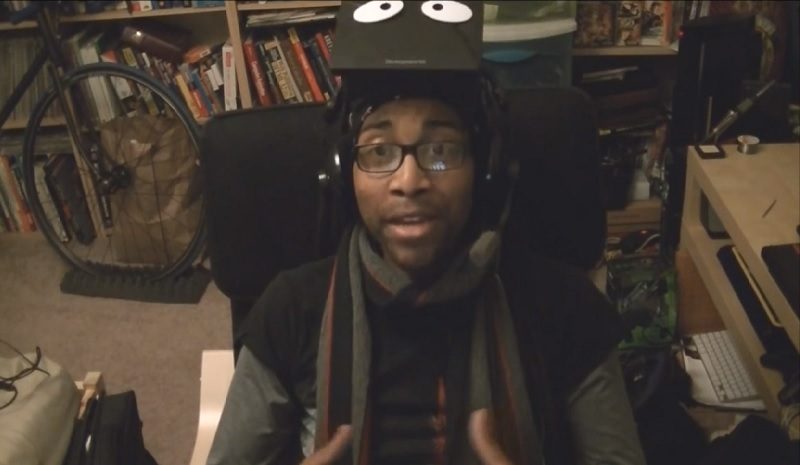Hey VR Heads! I am back with more VR gameplay analysis, this time using the highly anticipated VorpX software to explore various titles. Let’s dig right in!
Super Easy Setup
Using VorpX was awesomely simple. Double click on the shortcut, the program quietly runs in the background, boot up your game. That’s it! I am sure that the final program will have some config options, but so far things are delightfully easy.
A Variety of Titles
One of the most impressive features of VorpX is the sheer number of games it works with. I opened Bastion (2011) with VorpX active on a whim, and to my great surprise, it worked — no 3D of course — but still very cool! That led me to trying almost every game in my Steam library just to see if they would work, and how well VorpX would handle it. Over half of the games I have ended up working to some degree on the Oculus Rift with VorpX, including Tera, AKA The Exiled Realm of Arborea (2011), XCOM: Enemy Unknown (2012), and Tomb Raider (2013). Awesome!
Tracking and Visibility
As with Vireio, pitch and yaw headtracking gets tied to the mouse. Roll seemed to be a little bit sluggish, but overall the head tracking experience was smooth and spot on. Even in racing games like Dirt 2 (2009) and Grid(2008), VorpX provided headtracking without using TrackIR!
Although the two circles on screen look rather small, my vision was completely filled. However, I normally use C lens cups, so I switched to A lenses for a quick check. I was pleased to see my vision still filled. I was able to see a tiny bit of the black edge on the bottom, but I am sure that is something that could be easily corrected with a setting change.
I was also really happy with the way the mouse cursor was handled by VorpX. In all titles that were listed as compatible, the program provided a mouse cursor that worked properly in stereoscopic vision.
The Sense of 3D
VorpX apparently uses some interesting algorithms to get a stereoscopic 3D effect from games that were never intended to provide it. The sense of depth was not as pronounced as the games made from the ground up for VR, but it was still there. As I have stated before, depth isn’t everything for 3D; parallax, perspective, and overlap also contribute to fooling your brain. In games like Skyrim (2011) and BioShock Infinite (2013), I still felt a sense of scale and wonder as I explored the beautiful environments of each game. I certainly felt immersed and comfortable — no eye strain. I could easily play for hours using VorpX.
Overall Impressions
This program makes me incredibly excited! Even at this early stage of development, a respectable number of games are compatible and playable. It is easy to use, easy on the eyes, and led to hours of fun! There are some things out of VorpX’s control: computer controlled cut-scenes and UI/HUD elements that are positioned too far out prevent some games from being 100% enjoyable [see note on VorpX’s ‘Edge Peek’ feature below]. However, these titles are just a few mods away from being VR-ready. While we wait for the first “Killer App” designed specifically for VR, we will be able to dive into the worlds of old favorites!
Editor’s Note: At the time, Bruce was unaware of VorpX’s ‘Edge Peek’ mode. Pressing the middle-mouse button when playing a VorpX enhanced title will ‘unlock’ your viewpoint to allow you to glance around the entire game’s screen area. So, any hidden UI elements or menus are easily located. Pressing the middle-mouse button once again snaps your view back to center and you can carry on playing.
Until the Next VR Experiment,







